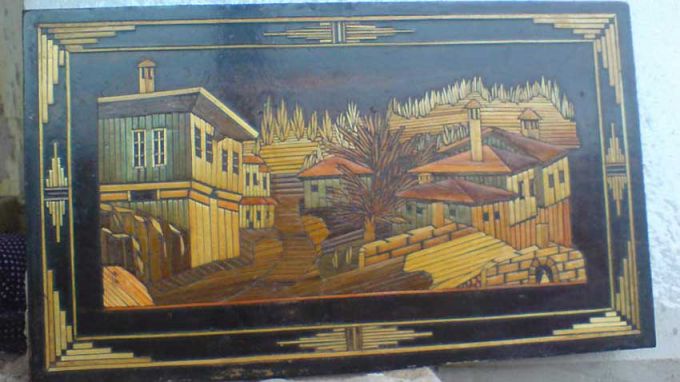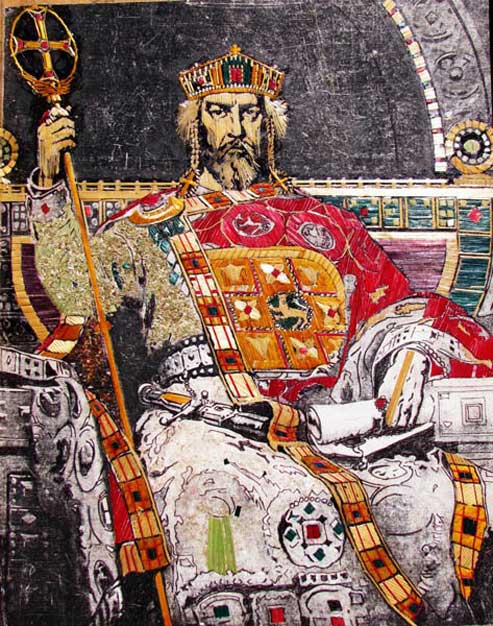 2
2
Ruslan Russev creates his paintings using herbs instead of brushes. His works caress one’s senses with the imagery and gentle aroma of sweltering summer. They are especially beautiful in the evening when dusk falls and one sees the embossed structure of the herbal mosaic and the light and shade effects. The process of creation is long and laborious: picking herbs, drying them, crushing, splitting straws, which are also used, heat treatment, application of the resulting material. This is the way the artist creates his mosaics, depicting historical figures, landscapes and saints.
"I try to pick herbs when they are blooming, then I dry them,” says Mr. Russev about the creative process. “To create a single work I need at least a month. Application of the herbal material requires strong vision and it is very tiring for the eyes. I also use a magnifying glass. The colors of my paintings do not fade away with time as I have developed a special technology. In my works I use only natural materials. I color part the herbs using other herbs, while some retain their original color. I create the picture gradually, according to the time when I pick the various herbs.”
 An important part of the amazing art of Ruslan Russev is color extraction.
An important part of the amazing art of Ruslan Russev is color extraction.
Mr. Russev made his first steps towards this art in the army when in order to kill time soldiers were creating figures using straws and grass. Later he graduated from the Institute of International Tourism and worked for years in the field. One night when asleep, his psychic grandmother Slava Sevryukova came to his dream and advised him to return to herb paintings. The artist says that today he is the only one in Bulgaria who creates this type of art. How does he get information about the techniques and skills needed in order to progress?
"No one can teach me the skills,” the artist notes. “It is me who can teach somebody about the technique I use. I have achieved everything using the method of trial and error. Some things I use, while others are not suitable at all. If I am not able to extract the colors I need, there is no point in starting a work. I think a lot before starting placing straws and herbs on the canvass because mistakes are hard to correct, especially when some 10 square centimeters of the image require about 20 days of work. This is the most difficult – not making mistakes when placing the herbs,” the artist says in conclusion.
English: Alexander Markov
Photos: rusiart.svidnia.comGreat Bulgarian director Nikolay Volev, author of some of the most beloved Bulgarian films such as " Dvoynikat ", " Gospodin za edin den ", “ Da obichash na inat” , " Margarit i Margarita ” and many others, passed away in a..
Until the end of the year, the Bulgarian public will meet French culture in the form of a series of film screenings, literary readings, conferences, exhibitions, etc. The occasion is 145 years since the establishment of diplomatic relations between..
There are 52,000 students at the biggest higher educational establishment in Portugal, 20,000 of them of other nationalities. Bulgarian culture has been part of this conglomeration of different cultures for more than 30 years. The Bulgarian language..

+359 2 9336 661
